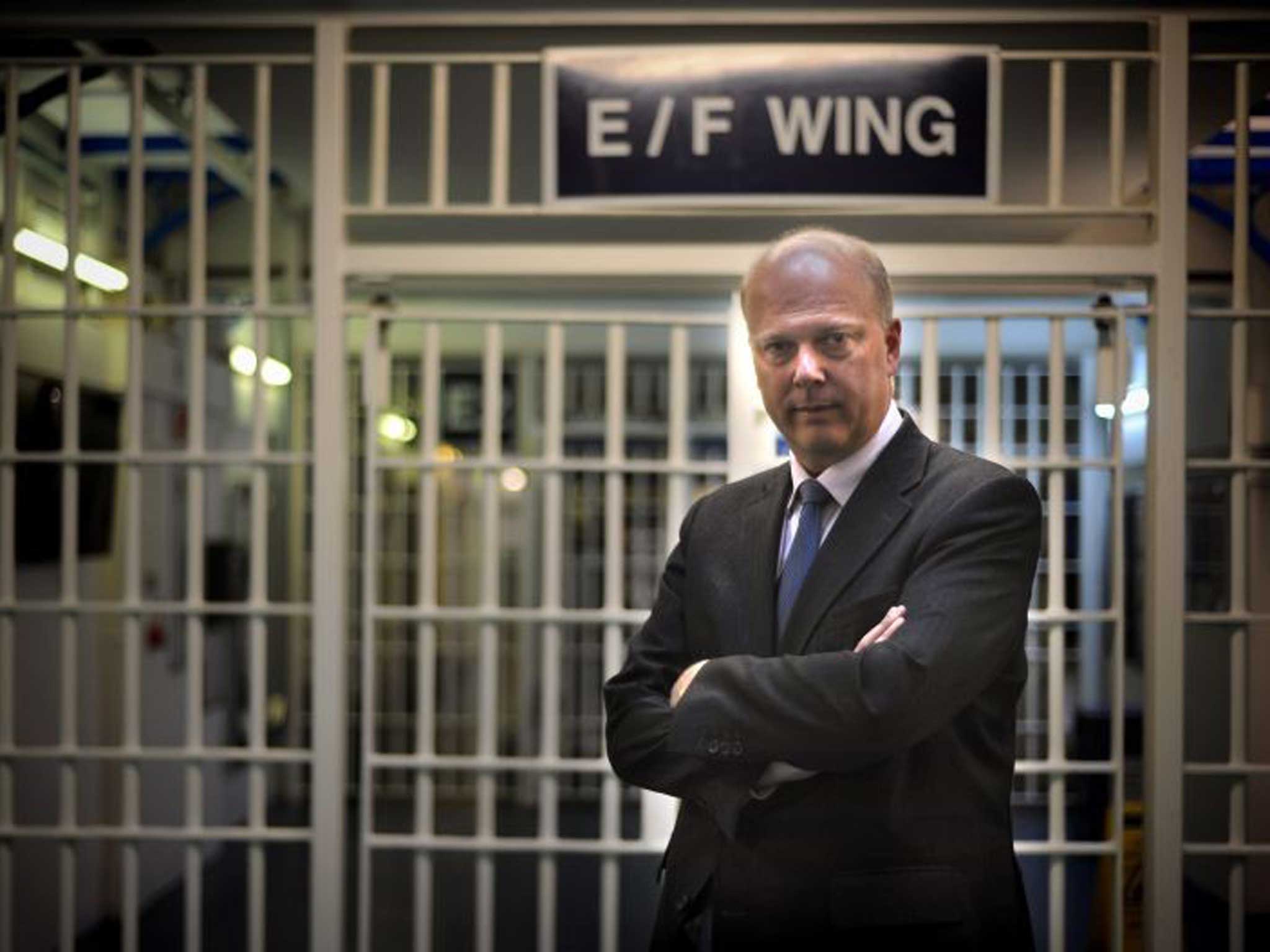Probation service 'staffing crisis' leaves public at risk from violent criminals
Redundancies and outsourcing put domestic violence victims in danger

A “staffing crisis” in the probation service due to cuts and reforms is leaving the public at danger from violent criminals – with women who have suffered from domestic violence among the most vulnerable, unions and campaigners have warned.
At least 1,200 staff will have left the probation service by the end of this year and the skills shortage means lower-grade employees are being asked to pick up the slack, taking on complex cases involving sexual and domestic violence. Rules to make sure only the most-experienced officers work on domestic-abuse cases are being disregarded as the service fights to stay on top of rising workloads. The losses are a result of planned redundancies and hundreds of staff retiring or changing careers due to disillusionment.

Frances Cook, chief executive of the Howard League for Penal Reform, said the rapid loss of experience could have a devastating impact on women. “There are only 9,000 probation officers to start with, and I think domestic violence is a particular worry. If somebody has already killed someone you know you need to treat them very carefully, but we know that domestic violence can escalate very quickly. Two women a week are killed by their partners.”
Around 500 probation officers have chosen to take early retirement or leave the service since the Government split it into two, outsourcing the least-complex work to privately run groups known as community rehabilitation companies (CRCs). Ministry of Justice figures confirm that more than 200 had already departed by late 2014.
An additional 700 redundancies have been announced by Sodexo – one of the largest private companies to win a contract to manage offenders, and which is now operating six of the 21 CRCs across England and Wales. Many of the employees transferred from the public sector to private firms as part of the reforms are also considering leaving.
“We have already got a staffing crisis. With the redundancies as well there are significant staff shortages around the country,” said Tania Bassett, head of press, parliament and campaigns at the probation officers’ union, Napo.
Napo reports 375 probation vacancies in London which are being covered by agency workers, but agencies are struggling to find sufficiently experienced staff. New staff being recruited into probation will not be fully trained for at least another 15 months. To keep on top of the workload, jobs that should be carried out by highly experienced officers – those holding a degree and earning up to £37,000 a year – are being passed on to “probation service officers”, an entry-level job which pays as little as £20,000.
Ms Bassett said the situation was not only dangerous for the public but damaging for staff too. “If you haven’t got the training to work with sex offenders it can have a very emotional impact on individuals.”
One senior probation officer, who did not wish to be named, said: “Collectively the service is having a nervous breakdown and my guess is at least 80 per cent of staff are just looking to get out by any means. The damage is done; there’s worse to come and there’s absolutely nothing that can stop it. I’m pessimistic about the future and it will take a couple of serious murders, prison riots or similar for politicians and the public to take the slightest notice.”

Under the new probation system, low-grade cases of domestic abuse fall under the remit of the CRCs. Plans for private companies to computerise much of the job, requiring offenders to log attendance on a screen rather than meeting an officer face to face, mean years of experience in how to help prevent an escalation of violence may be lost.
Polly Neate, chief executive of Women’s Aid, said she was “very concerned about the implication for the safety of women and children” due to the loss of experience. “Specialist knowledge is of the utmost importance when it comes to working safely with perpetrators and survivors of domestic violence,” she said.
A spokesperson for the Ministry of Justice said the number of people working in the National Probation Service – the part of the service that remains in the public sector – was rising.
“Staffing levels in the National Probation Service are closely monitored to ensure public safety. We are on track to have 1,000 officers in training by the middle of this year. The community rehabilitation companies allocate staff as appropriate to ensure medium and low-risk offenders are safely managed.”
Yvonne Patterson, 49, is a probation officer in Scarborough. She has been employed in the sector for 13 years and now works within the National Probation Service.
“There have been a number of people who have left in my area of work. There have been big numbers in other roles. Some staff have chosen to leave, some have taken early retirement when they would have worked on longer but they said, ‘we have had enough’. They don’t want to be part of it. A number at chief officer grade have said they won’t play any part in what the Government’s chosen to do.

Some were really, really good people who have been there for 25 or 30 years. They chose to leave because they could see what it’s turned into. Since the split happened, it’s a very different environment to work in. People that ended up in the community rehabilitation company side were made to feel like they weren’t good enough. They felt very under-valued. It’s not a nice place to be anymore. I used to like going to work, but if something else was to come along I would certainly seriously consider it.”
Case study: ‘Not a nice place to be’
Yvonne Patterson, 49, is a probation officer in Scarborough. She has been employed in the sector for 13 years and now works within the National Probation Service.
“There have been a number of people who have left in my area of work. There have been big numbers in other roles. Some staff have chosen to leave, some have taken early retirement when they would have worked on longer but they said, ‘we have had enough’. They don’t want to be part of it. A number at chief officer grade have said they won’t play any part in what the Government’s chosen to do.
Some were really, really good people who have been there for 25 or 30 years. They chose to leave because they could see what it’s turned into. Since the split happened, it’s a very different environment to work in. People that ended up in the community rehabilitation company side were made to feel like they weren’t good enough. They felt very under-valued. It’s not a nice place to be anymore. I used to like going to work, but if something else was to come along I would certainly seriously consider it.”
